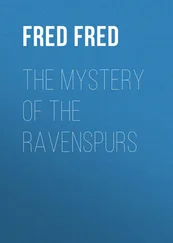Ford Ford - The Inheritors
Здесь есть возможность читать онлайн «Ford Ford - The Inheritors» — ознакомительный отрывок электронной книги совершенно бесплатно, а после прочтения отрывка купить полную версию. В некоторых случаях можно слушать аудио, скачать через торрент в формате fb2 и присутствует краткое содержание. Жанр: foreign_prose, на английском языке. Описание произведения, (предисловие) а так же отзывы посетителей доступны на портале библиотеки ЛибКат.
- Название:The Inheritors
- Автор:
- Жанр:
- Год:неизвестен
- ISBN:нет данных
- Рейтинг книги:4 / 5. Голосов: 1
-
Избранное:Добавить в избранное
- Отзывы:
-
Ваша оценка:
- 80
- 1
- 2
- 3
- 4
- 5
The Inheritors: краткое содержание, описание и аннотация
Предлагаем к чтению аннотацию, описание, краткое содержание или предисловие (зависит от того, что написал сам автор книги «The Inheritors»). Если вы не нашли необходимую информацию о книге — напишите в комментариях, мы постараемся отыскать её.
The Inheritors — читать онлайн ознакомительный отрывок
Ниже представлен текст книги, разбитый по страницам. Система сохранения места последней прочитанной страницы, позволяет с удобством читать онлайн бесплатно книгу «The Inheritors», без необходимости каждый раз заново искать на чём Вы остановились. Поставьте закладку, и сможете в любой момент перейти на страницу, на которой закончили чтение.
Интервал:
Закладка:
"Oh, I congratulate you," he said.
"You see," I began to combat the objections he had not had time to utter, "even for my work it will be a good thing – I wasn't seeing enough of life to be able to…"
"Oh, of course not," he answered – "it'll be a good thing. You must have been having a pretty bad time."
It struck me as abominably unfair. I hadn't taken up with the Hour because I was tired of having a bad time, but for other reasons: because I had felt my soul being crushed within me.
"You're mistaken," I said. And I explained. He answered, "Yes, yes," but I fancied that he was adding to himself – "They all say that." I grew more angry. Lea's opinion formed, to some extent, the background of my life. For many years I had been writing quite as much to satisfy him as to satisfy myself, and his coldness chilled me. He thought that my heart was not in my work, and I did not want Lea to think that of me. I tried to explain as much to him – but it was difficult, and he gave me no help.
I knew there had been others that he had fostered, only to see them, in the end, drift into the back-wash. And now he thought I was going too…
"Here," he said, suddenly breaking away from the subject, "look at that."
He threw a heavy, ribbon-bound mass of matter into my lap, and recommenced writing his report upon its saleability as a book. He was of opinion that it was too delicately good to attract his employer's class of readers. I began to read it to get rid of my thoughts. The heavy black handwriting of the manuscript sticks in my mind's eye. It must have been good, but probably not so good as I then thought it – I have entirely forgotten all about it; otherwise, I remember that we argued afterward: I for its publication; he against. I was thinking of the wretched author whose fate hung in the balance. He became a pathetic possibility, hidden in the heart of the white paper that bore pen-markings of a kind too good to be marketable. There was something appalling in Lea's careless – "Oh, it's too good!" He was used to it, but as for me, in arguing that man's case I suddenly became aware that I was pleading my own – pleading the case of my better work. Everything that Lea said of this work, of this man, applied to my work; and to myself. "There's no market for that sort of thing, no public; this book's been all round the trade. I've had it before. The man will never come to the front. He'll take to inn-keeping, and that will finish him off." That's what he said, and he seemed to be speaking of me. Some one was knocking at the door of the room – tentative knocks of rather flabby knuckles. It was one of those sounds that one does not notice immediately. The man might have been knocking for ten minutes. It happened to be Lea's employer, the publisher of my first book. He opened the door at last, and came in rather peremptorily. He had the air of having worked himself into a temper – of being intellectually rather afraid of Lea, but of being, for this occasion, determined to assert himself.
The introduction to myself – I had never met him – which took place after he had hastily brought out half a sentence or so, had the effect of putting him out of his stride, but, after having remotely acknowledged the possibility of my existence, he began again.
The matter was one of some delicacy. I myself should have hesitated to broach it before a third party, even one so negligible as myself. But Mr. Polehampton apparently did not. He had to catch the last post.
Lea, it appeared, had advised him to publish a manuscript by a man called Howden – a moderately known writer…
"But I am disturbed to find, Mr. Lea, that is, my daughter tells me that the manuscript is not … is not at all the thing… In fact, it's quite – and – eh … I suppose it's too late to draw back?"
"Oh, it's altogether too late for that " Lea said, nonchalantly.
"Besides, Howden's theories always sell."
"Oh, yes, of course, of course," Mr. Polehampton interjected, hastily, "but don't you think now … I mean, taking into consideration the damage it may do our reputation … that we ought to ask Mr. Howden to accept, say fifty pounds less than…"
"I should think it's an excellent idea," Lea said. Mr. Polehampton glanced at him suspiciously, then turned to me.
"You see," he began to explain, "one has to be so careful about these things."
"Oh, I can quite understand," I answered. There was something so naïve in the man's point of view that I had felt my heart go out to him. And he had taught me at last how it is that the godly grow fat at the expense of the unrighteous. Mr. Polehampton, however, was not fat. He was even rather thin, and his peaked grey hair, though it was actually well brushed, looked as if it ought not to have been. He had even an anxious expression. People said he speculated in some stock or other, and I should say they were right.
"I … eh … believe I published your first book … I lost money by it, but I can assure you that I bear no grudge – almost a hundred pounds. I bear no grudge…"
The man was an original. He had no idea that I might feel insulted; indeed, he really wanted to be pleasant, and condescending, and forgiving. I didn't feel insulted. He was too big for his clothes, gave that impression at least, and he wore black kid gloves. Moreover, his eyes never left the cornice of the room. I saw him rather often after that night, but never without his gloves and never with his eyes lowered.
"And … eh …" he asked, "what are you doing now, Mr. Granger?"
Lea told him Fox had taken me up; that I was going to go. I suddenly remembered it was said of Fox that everyone he took up did "go." The fact was obviously patent to Mr. Polehampton. He unbent with remarkable suddenness; it reminded me of the abrupt closing of a stiff umbrella. He became distinctly and crudely cordial – hoped that we should work together again; once more reminded me that he had published my first book (the words had a different savour now), and was enchanted to discover that we were neighbours in Sussex. My cottage was within four miles of his villa, and we were members of the same golf club.
"We must have a game – several games," he said. He struck me as the sort of man to find a difficulty in getting anyone to play with him.
After that he went away. As I had said, I did not dislike him – he was pathetic; but his tone of mind, his sudden change of front, unnerved me. It proved so absolutely that I was "going to go," and I did not want to go – in that sense. The thing is a little difficult to explain, I wanted to take the job because I wanted to have money – for a little time, for a year or so, but if I once began to go, the temptation would be strong to keep on going, and I was by no means sure that I should be able to resist the temptation. So many others had failed. What if I wrote to Fox, and resigned?.. Lea was deep in a manuscript once more.
"Shall I throw it up?" I asked suddenly. I wanted the thing settled.
"Oh, go on with it, by all means go on with it," Lea answered.
"And …?" I postulated.
"Take your chance of the rest," he supplied; "you've had a pretty bad time."
"I suppose," I reflected, "if I haven't got the strength of mind to get out of it in time, I'm not up to much."
"There's that, too," he commented, "the game may not be worth the candle." I was silent. "You must take your chance when you get it," he added.
He had resumed his reading, but he looked up again when I gave way, as I did after a moment's thought.
"Of course," he said, "it will probably be all right. You do your best.
It's a good thing … might even do you good."
In that way the thing went through. As I was leaving the room, the idea occurred to me, "By the way, you don't know anything of a clique: the Dimensionists — Fourth Dimensionists?"
Читать дальшеИнтервал:
Закладка:
Похожие книги на «The Inheritors»
Представляем Вашему вниманию похожие книги на «The Inheritors» списком для выбора. Мы отобрали схожую по названию и смыслу литературу в надежде предоставить читателям больше вариантов отыскать новые, интересные, ещё непрочитанные произведения.
Обсуждение, отзывы о книге «The Inheritors» и просто собственные мнения читателей. Оставьте ваши комментарии, напишите, что Вы думаете о произведении, его смысле или главных героях. Укажите что конкретно понравилось, а что нет, и почему Вы так считаете.












